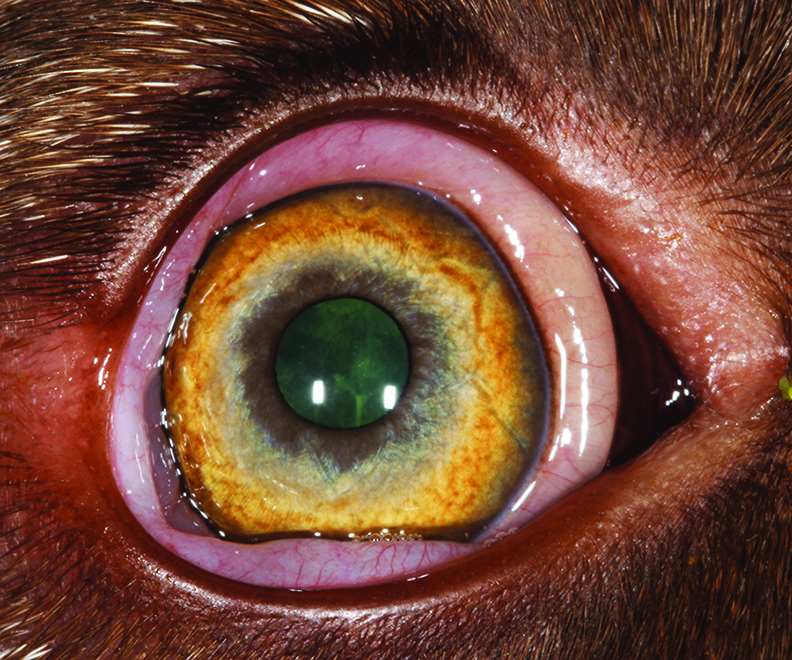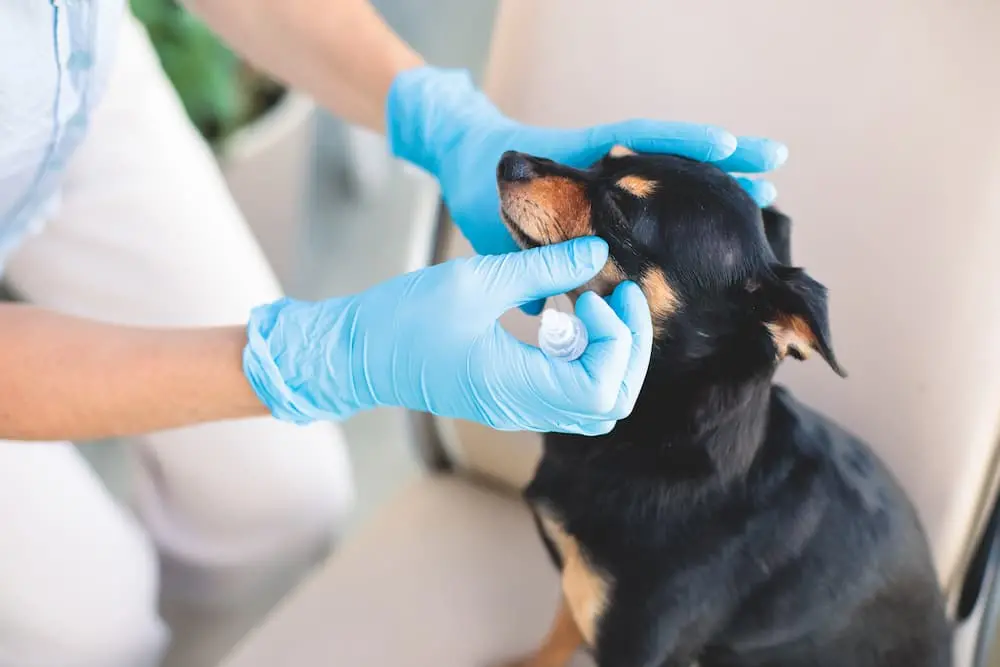Обзор

Каковы симптомы?
Conjunctivitis can affect one or both eyes. Common signs include:

Когда обращаться к ветеринару?
Contact your vet if you notice any of the symptoms above or if you have a suspicion there is something wrong with your dog’s eye(s). If conjunctivitis is left too long without treatment, it can lead to serious problems or even loss of an eye.
If your dog suffers with conjunctivitis regularly, your vet will check for any conditions that might be causing it.
You know your dog best. If they don’t have the symptoms listed above but you are still concerned it’s always best to contact your vet.
Causes of conjunctivitis in dogs?
Уход?
Treatment for conjunctivitis depends on the cause. Read articles on the conditions above for more information on each cause.
What if it doesn’t get better?
If your dog keeps getting conjunctivitis, they will need investigation by your vet. Investigations may include swabs, tear measurements, or perhaps a referral to a specialist ophthalmologist (eye vet).
Some conditions that cause conjunctivitis need lifelong treatment (for example atopy or dry eye).

| печенье | Продолжительность | Описание |
|---|---|---|
| cookielawinfo-checkbox-analytics | 11 месяцев | This cookie is set by GDPR Cookie Consent plugin. The cookie is used to store the user consent for the cookies in the category "Analytics". |
| cookielawinfo-флажок-функционал | 11 месяцев | The cookie is set by GDPR cookie consent to record the user consent for the cookies in the category "Functional". |
| cookielawinfo-checkbox-necessary | 11 месяцев | This cookie is set by GDPR Cookie Consent plugin. The cookies is used to store the user consent for the cookies in the category "Necessary". |
| cookielawinfo-checkbox-others | 11 месяцев | This cookie is set by GDPR Cookie Consent plugin. The cookie is used to store the user consent for the cookies in the category "Other. |
| cookielawinfo-флажок-производительность | 11 месяцев | This cookie is set by GDPR Cookie Consent plugin. The cookie is used to store the user consent for the cookies in the category "Performance". |
| просмотрено_cookie_policy | 11 месяцев | Файл cookie устанавливается плагином GDPR Cookie Consent и используется для определения того, дал ли пользователь согласие на использование файлов cookie. Он не хранит никаких личных данных. |
Создайте учетную запись или войдите в систему, чтобы сохранить любимых домашних животных.
У вас нет учетной записи? Связаться с нами
Прежде чем приступить к подаче заявления на усыновление, ознакомьтесь и примите наши правила обработки данных:
Примечание: By clicking "I Agree & Continue", you will be redirected to an external application form. This tracking system logs your interest but does not capture data from the external form.
Создайте учетную запись или войдите в систему, чтобы сохранить любимых домашних животных.
У вас нет учетной записи? Связаться с нами
Прежде чем приступить к подаче заявления на усыновление, ознакомьтесь и примите наши правила обработки данных:
Примечание: By clicking "I Agree & Continue", you will be redirected to an external application form. This tracking system logs your interest but does not capture data from the external form.